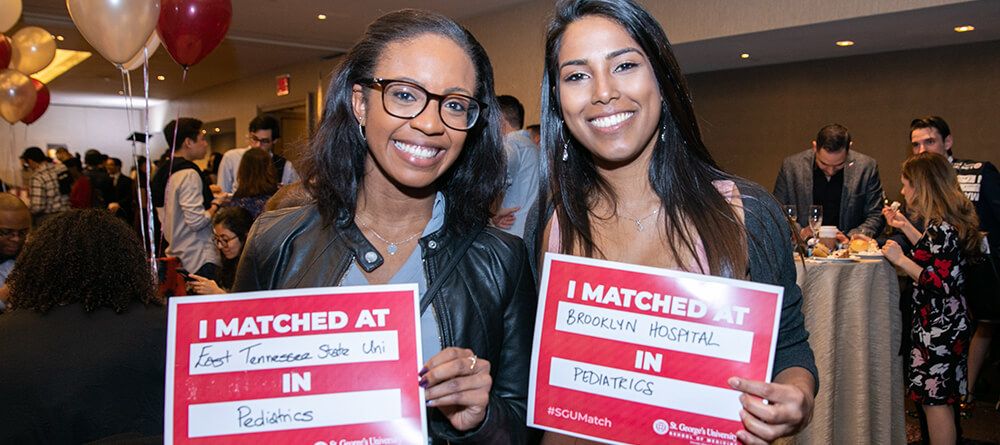As you work your way through medical school, you know that your knowledge and skills will be put to use during your medical residency. This program is where you’ll gain the hands-on experience you’ll need to polish your training as a physician.
You’ve likely been told just how important your residency can be, but that doesn’t mean there aren’t still some lingering questions about the process. That’s why we’ve assembled some of the most frequently asked questions so you can learn more about this critical phase of your medical training.
6 common questions about medical residency
Completing your medical residency is an important step on the road to becoming a board-certified attending physician. It is when you’ll finally be able to put everything you’ve learned into practice. And the more you know about the experience ahead, the better prepared you’ll be.
1. How long is medical residency?
Upon completing a Doctor of Medicine (MD) program, graduates must go through post-graduate training—better known as residency. This can take anywhere from three to seven years, depending on the area of focus. Some residents opt to participate in a medical fellowship and sub-fellowships after their residency training. Those programs generally add one to five more years of study in subspecialty areas.
2. Is medical residency required?
For doctors who are pursuing a career in patient care, a medical residency is a requirement. Technically speaking, you’ll earn your MD at your medical school graduation. There are some nonclinical positions available for physicians without residency experience, but most graduates will go on to complete residency training.
In fact, completing a postgraduate residency program that’s accredited by the Accreditation Council for Graduate Medical Education (ACGME) is one of the requirements for obtaining a medical license in the United States. As a resident physician, you’ll receive supervised, hands-on training alongside a team of other health practitioners. You’ll become adequately prepared to treat all patients, regardless of which medical specialty you pursue through:
- direct exposure to specialized services
- a variety of care settings, diverse patient cases
- cutting-edge research
3. What is residency like?
The biggest change you’ll experience in the shift from medical school to residency is that you go from being a medical student to practicing (with supervision) as a physician. But those newfound privileges don’t come easy. Former residents will be the first to tell you that the process can be pretty arduous.
It’s exhausting and often fast-paced work, but the hands-on nature of the training really expedites the learning process. While this is considered “post-graduate training”, for the most part, medical residents act and are treated as any other practicing physician.

The hours residents work will vary depending on the facility and program. That said, there are regulations in place to prevent resident work weeks from exceeding 80 hours and first-year resident shifts from exceeding 28 hours.
4. Do medical residents get paid?
The short answer is yes, medical residents are compensated for their work. In many cases, residents are even eligible for benefits like health insurance and paid time off. But exactly how much they get paid will vary depending on a number of factors. The geographic location will inevitably have an impact on earning potential, as will a resident’s accumulated experience in their specialty.
To get a sense of what you can expect, you can review the resident stipend data collected by the American Association of Medical Colleges (AAMC). The most recent survey reports that first-year residents received a mean stipend of $63,800 in 2023. Fourth-year residents earned a mean stipend of $75,079 during that same time period.
5. How do you apply to residency programs?
Medical students begin their residency matching process during their final year of medical school. It’s during that last year of study when aspiring physicians choose which type of medicine they want to practice.
“The Match” is short for the National Residency Matching Program’s Main Residency Match, a system used to place medical students into US residency programs. The process begins when applicants apply to programs using the Electronic Residency Application Service (ERAS). Once applications are submitted, programs have committees determine which applicants to invite for residency interviews.

After the interview phase is completed, both the applicants and the residency programs create rank-order lists, outlining their top choices. From there, a computer algorithm takes over to do the actual matching by aligning applicants and programs based on those rank-order lists. Students find out whether they’ve matched on the Monday of Match Week, which is typically the third week in March.
6. What comes after medical residency?
In the journey to become an MD, the steps that follow a successful medical residency will depend entirely on your personal career goals. Doctors are eligible to apply for an unrestricted medical license after completing their residency program. After the residency program is completed, most graduates focus on preparing for the board certification exam. This process is done while working as an attending physician in outpatient or hospital settings or continuing their education through a fellowship.
The most common path doctors take at this juncture is entering private practice, joining a group practice, or securing a spot at a hospital. Some physicians, however, undertake a fellowship after their residency to learn additional skills in their subspecialty area.
Prepare for a successful medical residency
Now that you know how long medical residency takes and all the other important details of this critical postgraduate training, you can start to prepare for this upcoming milestone.
At SGU, the Office of Career Guidance (OCG) offers tailored guidance to assist you in finding a postgraduate residency. It aims to empower you during the process of finding a residency that advances your career goals and contributions to patient care.
This team uses a variety of strategies to identify optimal specialties, programs, applications, and interview techniques. This SGU team is available to support you before, during, and after the residency application process.
*This article was originally published in February 2022. It has since been updated to reflect new information.


